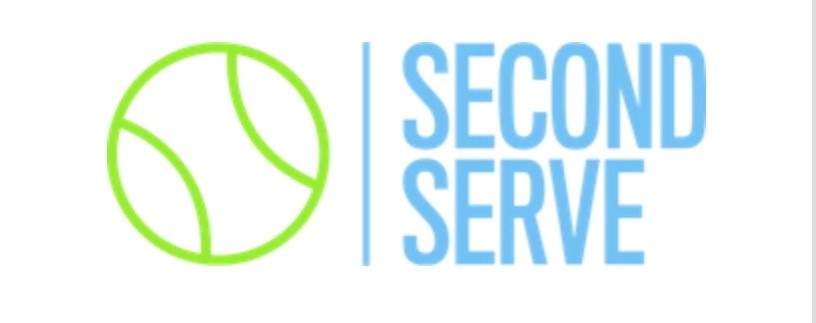Are You A Parent Dream Killer?

Photo courtesy of louisvillesportslive.net
Today’s Guest Post is from Ryan Segelke, founder and CEO of High Altitude Tennis in Colorado.
Before we get to the story of a parent dream killer, let’s start with a challenge for all the parents who are reading this article: I invite each HAT family parent (current, past, potential) to open your mind and consider the fact that it’s easy to fall into some traps when supporting your child’s athletic dreams. However, that is 100 percent understandable because it comes from caring greatly about them. In addition, it may be that many parents can’t quite gauge how their actions affect their child or know how to fix issues that arise along the way.
I also encourage specific parent personality types who tend to “know it all” (I know you know who you are, and I can relate because my beautiful wife reminds me daily that I have this tendency) to stop and remember exactly what we teach our kiddos: the more you know, the more you realize you don’t know. My aim in this article, then, is to ensure that each parent engages in the story below with a clear mind and takes away, at a minimum, one tool to help their child achieve their best. That’s why we are all here, right?
The Parent Dream Killer:
Tommy is four years old and is just beginning his very first swimming class. His parents Mary and Jerry signed him up a week earlier with the hope that Tommy might rave about the class on the way home and ask to come back for future sessions. The session begins and Mary and Jerry are watching though the window with no expectation of future Olympic gold, national titles or club championships. They are simply paying close attention to the teachers to ensure they are indeed specialists. They want him to start off with the best instruction in case he does take to the sport, as they know that “the art is where you start.” And, overall, they are just excited to see Tommy trying something new. Tommy indeed does leave the first session with a smile on his face, as he explains every new technique he learned. What a great experience for all!
Fast-forward several years. Tommy is now 15 years old and has been swimming for over 10 years. Tommy has loved swimming and has become one of the best swimmers in his state, but he has started to show signs of “burn out” in the past 12-18 months. It’s time for Monday practice and, on the ride to the pool, Mary begins lecturing Tommy about how much money they are putting into his swimming. They have spent more than their budget allows, and it has put a strain on the entire family. She tells him that if he doesn’t work harder in practice and perform better in competitions, they are going to pull him out of the great, specialized training that he has been a part of for the past 10+ years. Tommy sighs.
They arrive at practice and Jerry meets them there, as he just got off work. Jerry (a parent, co-coach who knows he has hired the best team of specialists around and loves the results) was a swimmer himself in high school and in college. But, he is still living his own dreams through Tommy and feels he needs to be the main coach as well. This adds unneeded conflict and stress to the situation. Jerry spends the first 15 minutes of practice telling the head coach what he thinks Tommy needs to work on and what competitions he should be signed-up for. Tommy sees this and knows that his father means well and is only trying to help him. However, he sighs again as his father and the swimming coach disagree about what he needs to be doing to improve in order to get ready for the upcoming nationals. How stressful!
On the way home, Mary and Jerry immediately begin bombarding Tommy about how his times aren’t good enough, and they compare him to his biggest rival on the team, Alex. Jerry says, “How come you can’t win as much as Alex? He is always going to Nationals and doing well!” Mary agrees and says, “With how much money we are putting into this, you had better do well at nationals this weekend!” Tommy sighs…again.
At the national tournament, Tommy improves his past times but does not live up to his parents’ expectations of winning the title, and he finishes 3rd. They don’t let him know, verbally, about their disappointment, but he can tell through their body language and by the way they are bickering with each other. Also during the trip, Jerry is approached by a coach who is smiling like a used-car salesman. And this coach proceeds to tell Jerry how great Tommy is and that if he were to join the coach’s general program, Tommy would win Nationals (no facts provided, just smiles). This excites Jerry despite the fact that Tommy has a 10-year relationship with his current program. Jerry is excited to add another program into the mix. It seems like a good, quick fix.
The following week, Tommy spends three days at his specialized program and two days with the new, general club program. At his trusty specialized program with the coaches he has grown to trust, there is a rigor that he likes and is use to. He can see himself improving incrementally, and the coaches always have reasons for what they do. But, the new, general program is more like the Wild West. Everyone does their own thing. Every coach is teaching a different philosophy, which confuses Tommy. And there is an overall lack of accountability. He can see how his discipline is slowly getting worse. After the third coach of the day comes up to Tommy and tells him how his technique on the breaststroke is wrong (“The specialists are teaching you incorrectly”), he gets out of the pool, walks to the locker room, changes, and finds his mother. She is upset that he quit. Mary says, “What was that Tommy? You must get back to practice so we can get ready for nationals next month!” Tommy replies, “I quit,” and he walks to the car. Mary knows he is serious and tries to remedy the situation. But, it’s too late. Tommy never returns to competitive swimming.
In conclusion, I am not suggesting there shouldn’t be accountability in training. I am, however, suggesting a few changes in approach:
If a student is “driving the bus” by requesting more of an activity, everyone is winning.
Stick to a budget; spend what you can to provide the best training for your child. Don’t take out a second mortgage on the house to fund your child’s dreams.
Don’t compare your child to other competitors/teammates. There is no other child in this universe like yours. Everyone learns differently and at different speeds. Comparing your child with others will backfire and will do the opposite of what you are intending.
Find the right, specialized program and be loyal. Not only does attending multiple programs frustrate your child and stagnate their learning, it also does not set a great example of loyalty to a team of coaches who have put in years of work with your child. By all means, if you are with a generalist who provides smiles without results, kick them to the curb. But if you have found a program that can help your child win in a specific activity and in life, stay the course!
Don’t co-coach. You have researched, found and been loyal to a specialized program for years because you know that as a parent you are not qualified in the specific venture your child has chosen on their own. You need to make a choice. You can either: 1) quit your job and spend countless years and 60-hour work weeks learning the craft your child has taken on (doesn’t seem too logical), or, 2) trust your coaching staff and ask for specific results and evidence to prove it is worth your investment.
Finally, let us know if this article made an impact on you. Did you find that you have some of the tendencies described above? Was it a helpful article? I want to hear about it and help in any way I can. Email me at [email protected]!












